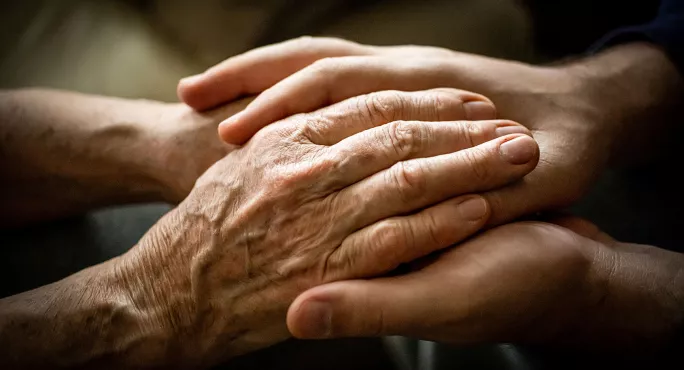How we’re helping our young carers in school

It is estimated there are more than 800,000 young carers in the UK, and likely more “hidden carers”, who routinely take on responsibilities at home such as shopping, cooking and looking after younger siblings.
Sadly, according to research by The Children’s Society, one in three has a mental health issue, and around the same proportion misses school. As we mark Carers Rights Day, what can we in schools do to tackle this, and support children bearing caring responsibilities?
Identifying young carers
At Ninestiles, an academy in Birmingham, we have identified over 80 young carers in our community - but finding them has not been easy, and we know there may be others we have yet to identify. To do this we have put into place a series of initiatives:
- We are working more closely with our primary feeder schools to ensure that information is passed on to build as full a picture as possible about carers’ circumstances and the support they need.
- We are building awareness so that young people know that help is available, and how to access it. We are doing this through regular assemblies, discussions in form time and by displaying information around school - including discreetly in areas such as toilets.
- All of our staff members have received professional development from our professional learning institute, so can spot the signs that someone is a carer. These signs can include them being absent or late, not attempting or completing homework, having an unkempt appearance, being secretive about their home life and needing to be constantly in touch with home.
- We record details of young carers and their care circumstances on a central database, which is available to all staff members as appropriate, as well as in our safeguarding systems.
We have also asked some of the first young carers identified to act as ambassadors, so they can share their stories in awareness-raising assemblies.
Hearing, first hand, about the help that is available gives others confidence to come forward. Once we are aware of young carers, there are several layers of support that we can then offer, including:
- A safe space and one-to-one mentoring with me (an emotional literacy support assistant (ELSA) trained professional). Learners tell us they really value the opportunity to explore and express their emotions to someone they trust.
- Weekly group sessions within the school day (these sessions move around on the timetable to avoid frequent impact on the same subject). In these sessions, learners can offload, share experiences and have the freedom to be themselves.
- Coffee mornings for the parents and carers of our young carers - we know they can be isolated because of their illness or circumstance and by creating a network, and opportunities for their social engagement, we can alleviate the responsibility placed on the child.
- Practical help, which has on occasion involved me buying and delivering shopping, and help to engage with other agencies or complete applications for support.
- We have been proactive in making changes to practice - for example, our young carers are exempt from late detentions and can be given permission to be absent to accompany a family member to medical appointments or for other legitimate reasons.
This is in line with our attendance policy, which affords us to consider the context of any lateness, and we have been explicit with our staff that this is a circumstance we will permit. We continue to record and track any lateness so we can both support our young carers to develop good habits and keep across their overall wellbeing and behaviour, but do not impose the sanction of detention.
- We also have monthly calls with the carer and their family, so we can build a trusting relationship and adjust support as we need.
- Finally, we work closely with post-16 providers, so the transition when young carers leave us is smooth and supportive.
Making a meaningful difference
We have seen a clear impact. Attendance of our young carers in the past academic year was 85 per cent, and this has risen again this term, while lateness is down to around 6 per cent. This is a far better picture than the average one-third of young carers said to be missing school.
The students have also said their mental health has improved, and knowing they will not automatically get a detention if they are late because of their caring responsibilities has made them feel less anxious. Parents and carers have told us their child is far happier knowing they have support available in school.
Supporting children and young people with caring responsibilities is important at any age, but at secondary school, when issues with attendance, performance and behaviour have serious implications for a young person’s future, not to mention their self-esteem and wellbeing, it is vital we do all we can to support them and their families.
Sally Beech is a learning mentor and young carers’ lead at Ninestiles, an Academy, a Summit Learning Trust school in Birmingham
You need a Tes subscription to read this article
Subscribe now to read this article and get other subscriber-only content:
- Unlimited access to all Tes magazine content
- Exclusive subscriber-only stories
- Award-winning email newsletters
Already a subscriber? Log in
You need a subscription to read this article
Subscribe now to read this article and get other subscriber-only content, including:
- Unlimited access to all Tes magazine content
- Exclusive subscriber-only stories
- Award-winning email newsletters



